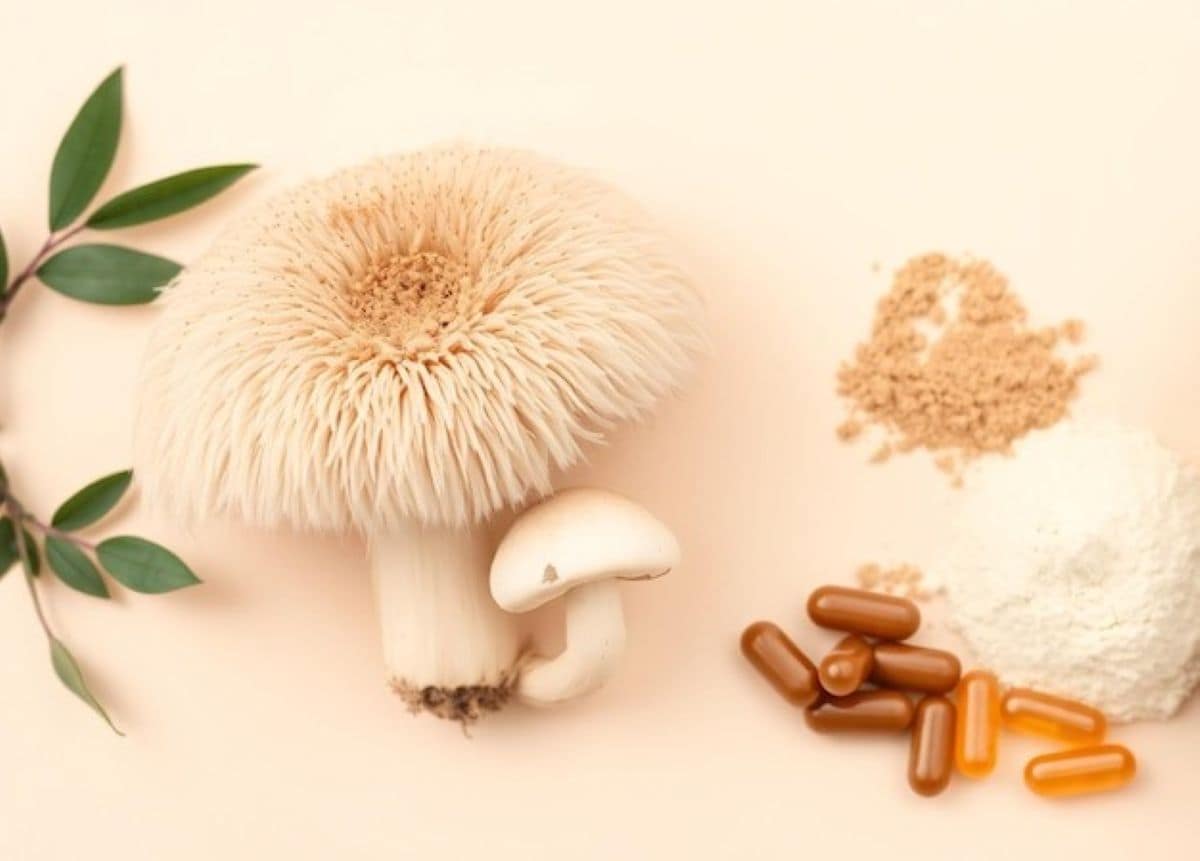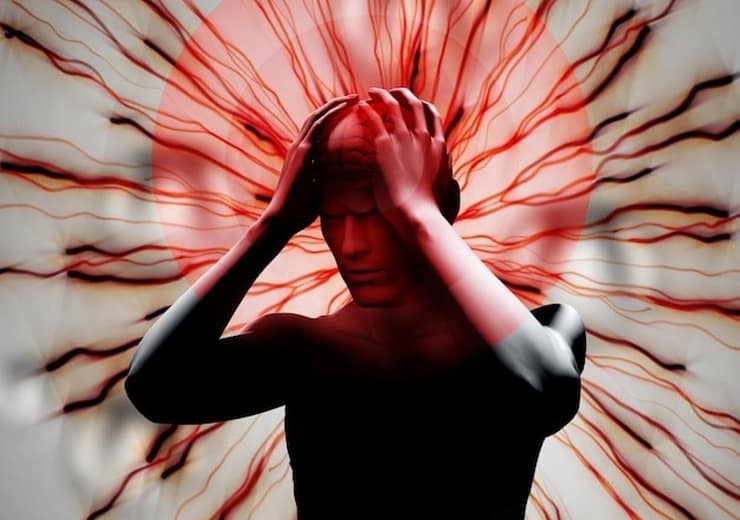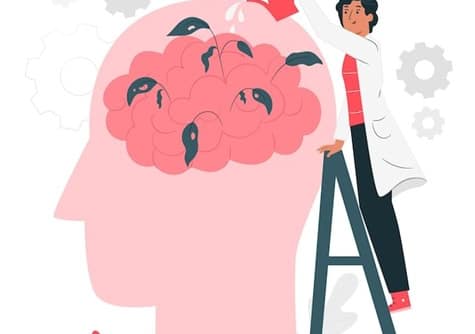Can Mushroom-Based Supplements Help Combat Depression?

Introduction to the Various Mushroom-Based Supplements That Help Treat Depression
Depression is a complicated and multifaceted mental health problem that affects millions around the world. While traditional treatments like therapy and medicine, best depression treatment in mumbai, remain important for managing depression, there is a growing interest in alternative and natural cures. Mushroom-based supplements, in particular, have gained popularity due to their potential mental health advantages, including the ability to treat depression. But can they really make a difference?
This blog by Jaslok Hospital, best depression clinic in mumbai, discusses the research, benefits, and limitations of using mushroom-based supplements to treat depression.
The Science Behind Mushrooms and Mental Health

Mushrooms are more than simply a gastronomic joy; they are nutritional powerhouses, including bioactive chemicals that help improve brain function. Some mushrooms are adaptogens, which help the body resist a wide range of stimuli, including physical, chemical, and biological ones. Others are nootropics, which improve cognitive function.
Key components in mushrooms thought to influence mental health are:
- Beta-glucans: These polysaccharides promote immunological health, which can have an indirect effect on mood control.
- Ergothioneine: A potent antioxidant that fights oxidative damage in the brain.
- Hericenones and erinacines: These chemicals, found in lion’s mane mushrooms, promote the synthesis of nerve growth factor (NGF), which is necessary for brain function.
- Triterpenes: Found in reishi mushrooms, these chemicals have anti-inflammatory and relaxing qualities.
Top Mushroom Varieties for Depression and Mental Health
Certain mushroom species have showed promise in terms of mental health assistance, particularly in the best depression treatment in mumbai of depression symptoms. Here are the most studied varieties.
1. Lion's Mane (Hericium Erinaceus)

Lion’s mane is a very beneficial mushroom for brain health. According to studies, lion’s mane boosts NGF production, which is needed for nerve cell growth and repair. A 2010 study published in the journal Biomedical Research discovered that lion’s mane supplementation boosted mood and lowered anxiety in women after four weeks.
2. Reishi (Ganoderma Lucidum)

Reishi, also known as the “mushroom of immortality,” contains adaptogenic qualities that assist the body respond to stress. Chronic stress is a significant factor to depression, and reishi’s capacity to moderate stress hormones such as cortisol makes it an effective ally.
3. Cordyceps (Cordyceps sinensis)

Cordyceps is well known for its energy-boosting qualities. It combats weariness, a typical symptom of depression, and boosts general vitality by boosting oxygen use and cellular energy generation.
4. Chaga (Inonotus obliquus)

Chaga mushrooms, which are high in antioxidants, may help to reduce inflammation in the brain, which is increasingly associated with sadness. They also improve immunological function, which can have an indirect effect on mental health.
5. Psilocybin Mushrooms

While not a supplement, psilocybin—the primary ingredient in “magic mushrooms”—is worth mentioning by the best depression center in mumbai. Psilocybin has been shown in controlled therapeutic settings to significantly improve depressive symptoms, particularly treatment-resistant depression. However, psilocybin is a controlled substance in many countries and should only be used with professional supervision.
How Mushroom-Based Supplements Treat Depression

Mushroom-based supplements treat depression symptoms through a variety of processes, including inflammation, stress, and neurogenesis. Here’s a closer look by the best depression center in mumbai at how they could benefit mental health.
1. Reducing Inflammation
Emerging research suggests a relationship between inflammation and depression. Chronic inflammation can impair brain function and decrease the availability of serotonin, a neurotransmitter important for mood control. Many medicinal mushrooms, including reishi and chaga, have significant anti-inflammatory qualities that may alleviate these effects.
2. Promoting Neurogenesis
Lion’s mane mushrooms activate NGF, which promotes neuronal growth and repair. This can boost brain plasticity, increasing the brain’s ability to adapt to stress and recover from trauma—both important elements in depression treatment.
3. Balancing the Stress Response
Adaptogenic mushrooms, such as reishi and cordyceps, assist regulate the hypothalamic-pituitary-adrenal (HPA) axis, which controls the body’s stress response. These mushrooms, which balance cortisol levels, help alleviate anxiety and promote mood stability.
4. Enhancing Energy and Motivation
Depression frequently saps energy and enthusiasm, making even simple chores seem impossible. Cordyceps, which is recognized for its energy-boosting properties, can help restore vigor and counteract weariness.
5. Supporting Gut Health
The gut-brain axis is vital for mental wellness. Beta-glucan-rich mushrooms, such as chaga and turkey tail, work as prebiotics, helping to maintain a healthy gut microbiota. A healthy microbiota can boost serotonin production and alleviate symptoms of depression.
Considerations and Precautions for Depression Patients for Taking mushroom-based supplements

While mushroom-based supplements show potential, their use should be approached with caution.
- Consult a Healthcare Professional: If you’re thinking about taking mushroom supplements, especially if you’re already taking other therapies, talk to your doctor about any potential interactions or contraindications.
- Quality Matters: To ensure purity and efficacy, select supplements from reputed companies.
- Psilocybin Caution: Psilocybin mushrooms should only be used in clinical or supervised settings where permitted.
- Allergic Reactions: Some people may have allergic reactions to some mushrooms. Start with tiny doses to determine tolerance.
How to Incorporate Mushroom-Based Supplements in Diet for Depression Patients

Adding mushroom-based supplements to your routine can be straightforward. They are available in a variety of formats, including capsules, powders, tinctures, and teas. Here are a few tips:
- Capsules and tablets: They are convenient and straightforward to dose.
- Powders: Add to smoothies, coffee, or recipes.
- Teas: Reishi and chaga teas are famous due to their relaxing properties.
- Blends: Many products blend different mushrooms to provide synergistic advantages.
Mushroom-based supplements have anti-inflammatory, neuroprotective, and adaptogenic qualities that make them a promising treatment for depression. While they are not a cure in themselves, they can supplement established treatments and improve overall well-being. As usual, consult a healthcare practitioner before beginning any supplement regimen. Mushrooms, with proper use, may be a natural ally in the fight against depression.
Jaslok Hospital, best depression clinic in mumbai, provides individualized mental health support and skilled guidance. Our devoted team guarantees that you receive the best possible care, combining creativity and compassion to help you achieve mental health.





